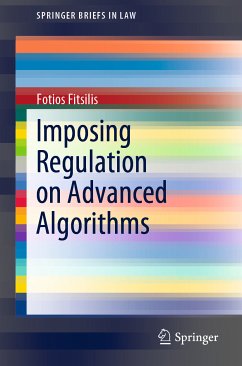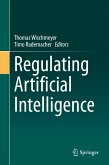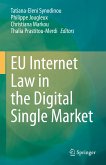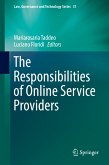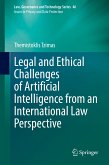This book discusses the necessity and perhaps urgency for the regulation of algorithms on which new technologies rely; technologies that have the potential to re-shape human societies. From commerce and farming to medical care and education, it is difficult to find any aspect of our lives that will not be affected by these emerging technologies. At the same time, artificial intelligence, deep learning, machine learning, cognitive computing, blockchain, virtual reality and augmented reality, belong to the fields most likely to affect law and, in particular, administrative law.
The book examines universally applicable patterns in administrative decisions and judicial rulings. First, similarities and divergence in behavior among the different cases are identified by analyzing parameters ranging from geographical location and administrative decisions to judicial reasoning and legal basis. As it turns out, in several of the cases presented, sources of general law, such as competition or labor law, are invoked as a legal basis, due to the lack of current specialized legislation. This book also investigates the role and significance of national and indeed supranational regulatory bodies for advanced algorithms and considers ENISA, an EU agency that focuses on network and information security, as an interesting candidate for a European regulator of advanced algorithms. Lastly, it discusses the involvement of representative institutions in algorithmic regulation.
Dieser Download kann aus rechtlichen Gründen nur mit Rechnungsadresse in A, B, BG, CY, CZ, D, DK, EW, E, FIN, F, GR, HR, H, IRL, I, LT, L, LR, M, NL, PL, P, R, S, SLO, SK ausgeliefert werden.
Es gelten unsere Allgemeinen Geschäftsbedingungen: www.buecher.de/agb
Impressum
www.buecher.de ist ein Internetauftritt der buecher.de internetstores GmbH
Geschäftsführung: Monica Sawhney | Roland Kölbl | Günter Hilger
Sitz der Gesellschaft: Batheyer Straße 115 - 117, 58099 Hagen
Postanschrift: Bürgermeister-Wegele-Str. 12, 86167 Augsburg
Amtsgericht Hagen HRB 13257
Steuernummer: 321/5800/1497
USt-IdNr: DE450055826
Bitte wählen Sie Ihr Anliegen aus.
Rechnungen
Retourenschein anfordern
Bestellstatus
Storno

